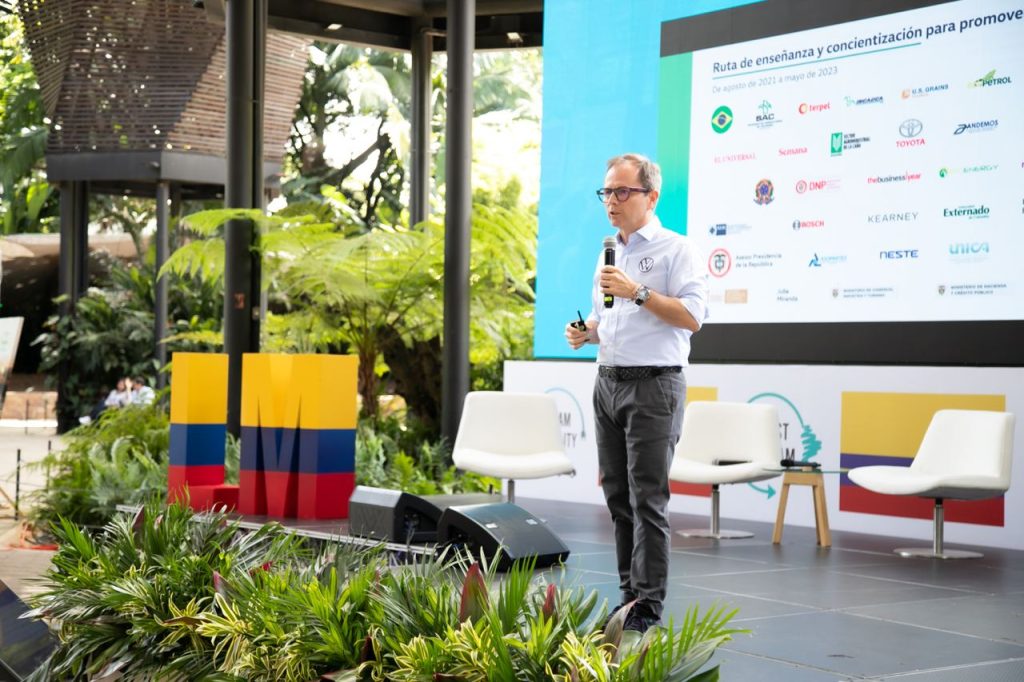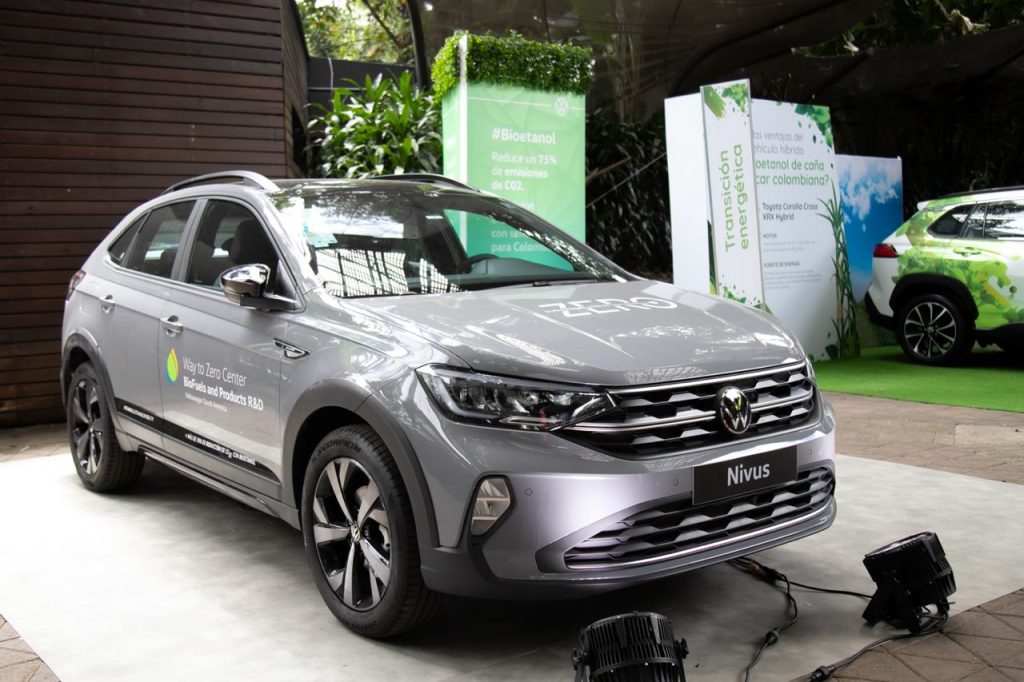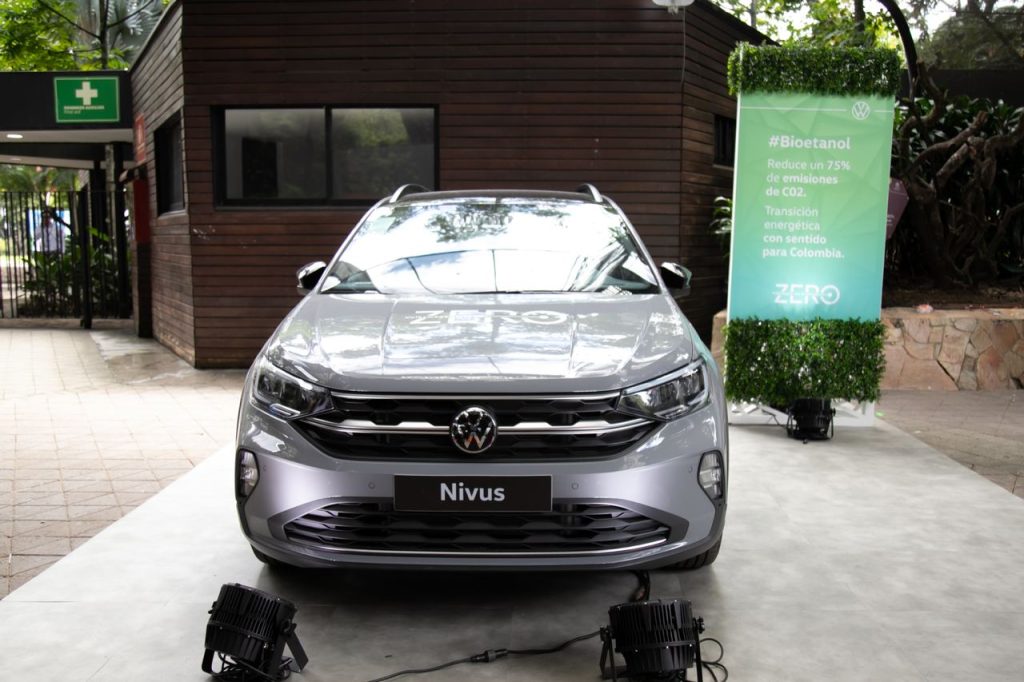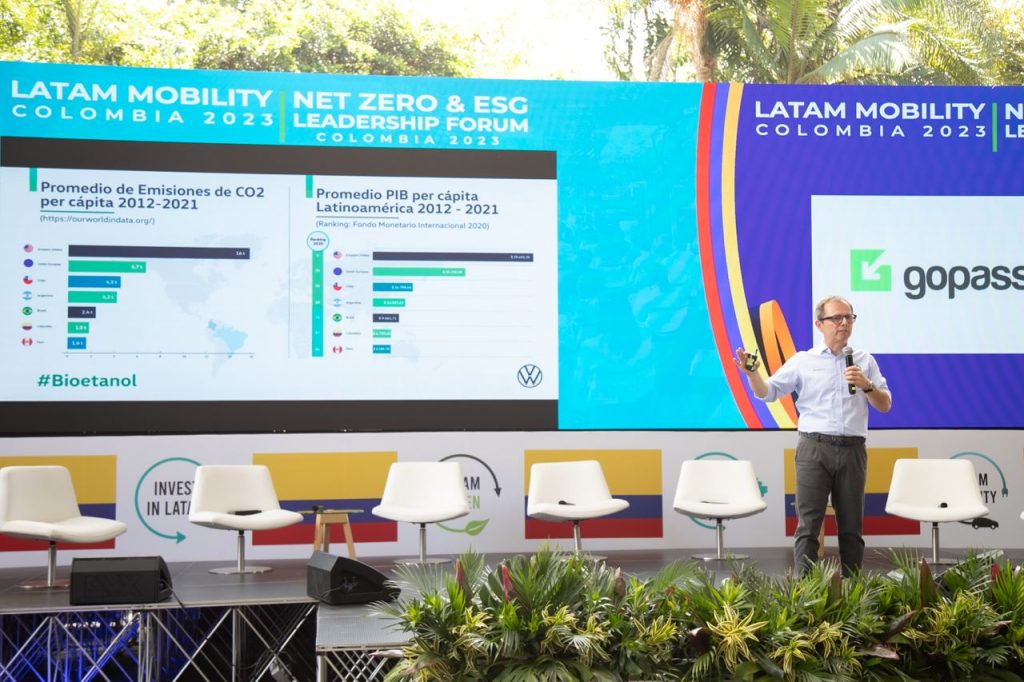Clean fuels are essential to advance towards the sustainable transition of mobility. For this reason, “Latam Mobility: Colombia 2023” featured various panels and presentations that showed the progress and challenges of the sector in the coffee-growing country and the region.
One of the outstanding presentations was given by Juan Felipe Bedoya, General Manager of Porsche Colombia S.A.S., under the title “Bioethanol: A Complementary Strategy for the Decarbonization of the Automotive Sector in Colombia“.
Bedoya began by stating that the transportation sector in Colombia currently represents 10% of emissions, and it is estimated that by 2030 it will be 15% . “Any action we can include in the energy transition strategy is fundamental because the sector is going to be an incremental emitter in the coming years.”

You may also be interested in: Fedebiocombustibles, Ecopetrol, Naturgas, Promigas and Colombian institutions Analyze the Current Situation of Clean Fuels
Some Numbers
The representative of Porsche Colombia explained that the company conducted a study on vehicle emissions and fuel production, both in gasoline and ethanol.
“We took Brazil and Europe as a base. We saw that a gasoline vehicle in Europe emits 152 grams of CO2 per kilometer, and an electric one, 66 grams. In Brazil, a gasoline vehicle, with 27% ethanol, emits 134 grams per kilometer; a 100% ethanol vehicle emits 47 grams per kilometer; and an electric vehicle emits only 15 grams per kilometer“, explained Bedoya.
“The most important thing is that today in Brazil a 100% ethanol vehicle emits less than an electric vehicle in Europe. The development of electric vehicles in Brazil will come after bioethanol, because they will continue to promote its use in decarbonization towards the future,” he said.
In relation to Colombia, Bedoya pointed out that the study showed that a gasoline vehicle emits 180 grams of CO2 per kilometer, while a 100% ethanol vehicle emits 44 grams, and an electric vehicle emits 27 grams. “The reduction in emissions today in Colombia of a 100% ethanol vehicle is 75%.”

Emissions Reduction
In his keynote speech at the “Latam Mobility: Colombia 2023“, and in accordance with the plan of the previous Colombian government that established a goal of 600,000 electric vehicles circulating in 2030, Bedoya compared their use with bioethanol.
“In 2030, if we were to have 600,000 total Flex vehicles running on 100% ethanol, the CO2 reduction in the transport sector would be 2.8 million tons per year, while the 600,000 electric vehicles would reduce 4.2 million tons of CO2 equivalent, but it will be really difficult to get there,” Bedoya emphasized.

In addition, the Porsche Colombia executive pointed out that measures are needed to reduce emissions consistently. “In the country, 880 million gallons of fuels are imported monthly, which could be substituted with local ethanol production, which can also reduce pressure from a macroeconomic point of view.”
Finally, Bedoya commented that bioethanol can contribute in the medium term to control inflation, but mainly it could be an element of savings for Colombians’ pockets. “Our proposal includes voluntary blends at service stations, so that the fuel is within everyone’s reach and we move towards decarbonization.”
Following is the second day of “Latam Mobility: Colombia 2023“




